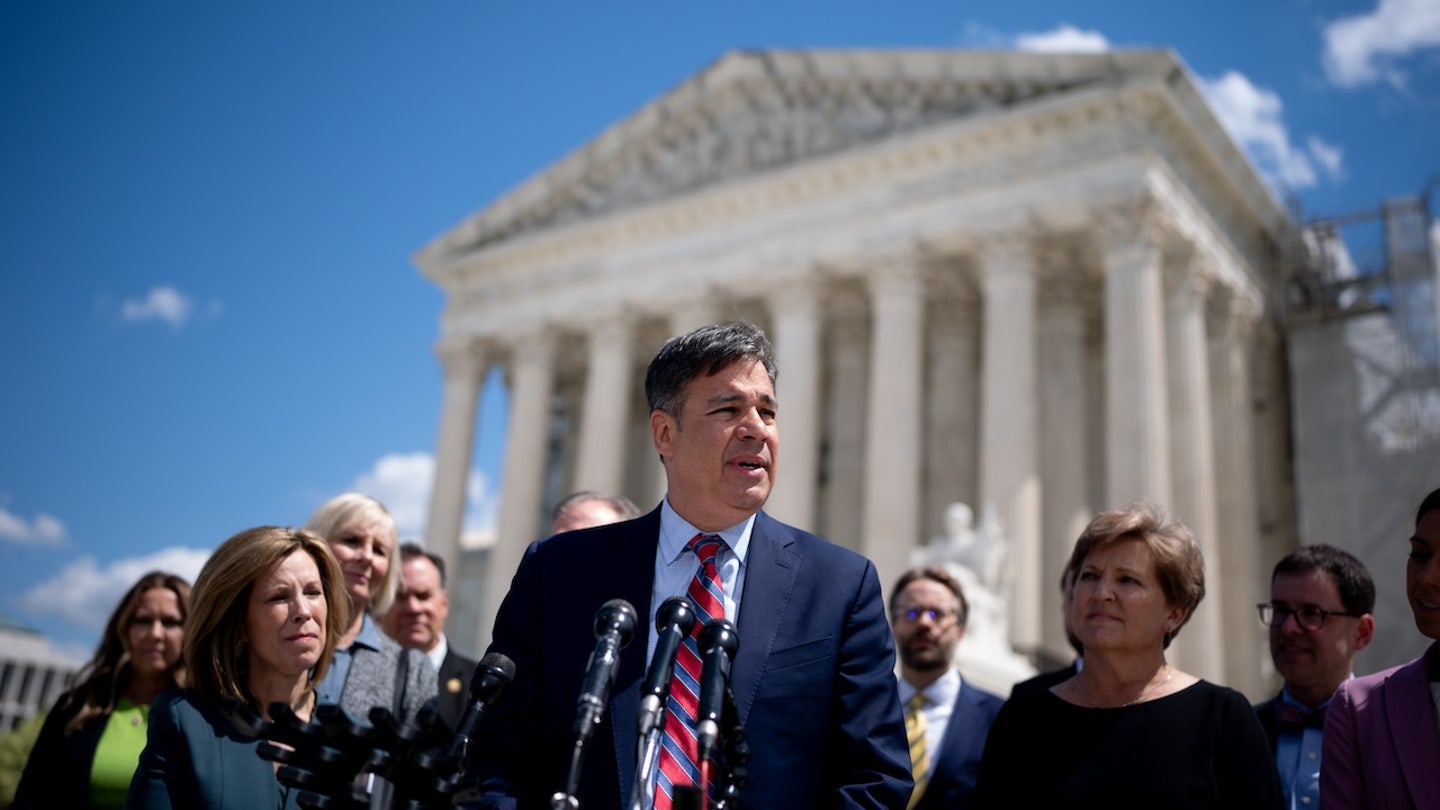
Ex-UPenn swimmer Lia Thomas to receive 'Voice of Inspiration' Award at Dodgers-sponsored event
Entities mentioned:
- Lia Thomas: Recognition, Ambition, Self-respect
- Rainbow Labs: Unity, Justice, Influence
- Riley Gaines: Competitive spirit, Righteousness, Moral outrage
- Los Angeles Dodgers: Recognition, Influence, Professional pride
Article Assessment:
Credibility Score: 65/100
Bias Rating: 65/100 (Lean Right)
Sentiment Score: 35/100
Authoritarianism Risk: 40/100 (Generally Democratic)
Bias Analysis:
The article leans right, giving more space to critical voices like Riley Gaines. It also uses loaded language when describing transgender issues, potentially swaying reader opinion.
Key metric: Gender Equality in Sports
Let me tell you something - this story is a GAME-CHANGER in the world of sports! We're seeing a real clash of titans here, folks, with Lia Thomas stepping up to the plate and swinging for the fences in the fight for transgender rights in athletics. But hold onto your hats, because Riley Gaines is coming in hot with a defensive play that could turn this whole match around! The Dodgers are playing both sides of the field here, trying to score points with multiple fan bases. This isn't just a swim meet anymore, people - we're talking about a full-on ideological decathlon that's going into overtime! The rules of the game are changing, and everyone's fighting for their spot on the podium. It's fourth quarter, it's do or die, and I'm telling you right now, this controversy is far from over!

Brewers fan loses job after imploring she would 'call ICE' on Hispanic Dodgers supporter: report
Entities mentioned:
- Shannon Kobylarczyk: Competitive spirit, Pride, Moral outrage
- Ricardo Fosado: Self-respect, Pride, Justice
- Milwaukee Brewers: Professional pride, Competitive spirit, Unity
- Los Angeles Dodgers: Competitive spirit, Ambition, Determination
- ManpowerGroup: Professional pride, Self-preservation, Reputation
- Make-A-Wish Wisconsin: Reputation, Unity, Professional pride
Article Assessment:
Credibility Score: 75/100
Bias Rating: 45/100 (Center)
Sentiment Score: 30/100
Authoritarianism Risk: 25/100 (Generally Democratic)
Bias Analysis:
The article presents multiple perspectives, including statements from both involved parties and the Brewers organization. It maintains a relatively neutral tone, balancing the incident details with contextual information.
Key metric: Social Cohesion
Let me tell you something, folks - this is a CLASSIC case of unsportsmanlike conduct in the stands! We've got a fan who's WAY out of bounds, throwing racial Hail Marys when her team's down in the count. This is the kind of foul play that has no place in America's pastime or ANY sport! I'm telling you right now, Kobylarczyk's ICE threat is like calling for a flagrant foul on a clean play - it's RIDICULOUS and shows a complete lack of teamwork in the bleachers. Fosado, a true MVP with his military service, is taking the high road like a champ, but the league - I mean, society - is cracking down on this bush league behavior. The Brewers and those companies are running a full-court press defense, ejecting both players from the game to protect their home court advantage in the court of public opinion. This is a fourth-quarter move that shows they're playing to win in the long game of social responsibility. The ball's in our court now, America - it's time to step up to the plate and show that in the game of life, we're all on the same team!

California girls' volleyball team with trans player sees 10th match forfeited amid controversy
Entities mentioned:
- Jurupa Valley High School girls' volleyball team: Competitive spirit, Unity, Determination
- Alyssa McPherson: Justice, Self-respect, Moral outrage
- AB Hernandez: Competitive spirit, Recognition, Self-preservation
- California Interscholastic Federation (CIF): Obligation, Control, Professional pride
- Gavin Newsom: Ambition, Influence, Wariness
- Donald Trump: Power, Moral outrage, Influence
Article Assessment:
Credibility Score: 75/100
Bias Rating: 55/100 (Center)
Sentiment Score: 35/100
Authoritarianism Risk: 40/100 (Generally Democratic)
Bias Analysis:
The article presents multiple perspectives, including those of transgender athletes, protesting players, and political figures. While it leans slightly right by emphasizing controversy, it maintains a relatively balanced approach.
Key metric: Gender Equality in Sports
Let me tell you something, folks - this story is a GAME-CHANGER! We're seeing a full-court press of controversy in California high school volleyball, with teams forfeiting left and right like they're dodging a spike from the opposing side. The Jurupa Valley squad is facing a defensive wall of forfeits, but they're showing true championship mentality by staying in the game. This is a classic matchup of inclusivity versus traditional competition, and both sides are digging deep into their playbooks. The political power players are stepping onto the court too, with Governor Newsom trying to find the middle ground while Trump is calling for a full-court press against transgender athletes. It's a high-stakes match with no clear winner in sight, and the clock is ticking as we head into the postseason. I'm telling you right now, this is one for the record books!

Kansas fined $25,000 for coach's 'inaccurate statement' about pocket knife hitting staffer in Texas Tech game
Entities mentioned:
- University of Kansas: Self-preservation, Professional pride, Loyalty
- Lance Leipold: Professional pride, Competitive spirit, Indignation
- Texas Tech: Competitive spirit, Self-preservation, Pride
- Big 12 Conference: Control, Justice, Professional pride
- Brett Yormark: Duty, Control, Justice
- Joey McGuire: Competitive spirit, Self-preservation, Professional pride
Article Assessment:
Credibility Score: 75/100
Bias Rating: 50/100 (Center)
Sentiment Score: 30/100
Authoritarianism Risk: 35/100 (Generally Democratic)
Bias Analysis:
The article presents multiple perspectives and quotes from various parties involved. It maintains a neutral tone, reporting facts and statements without apparent favoritism towards any side.
Key metric: NCAA Football Integrity Index
Let me tell you something, folks - this is a FOURTH QUARTER FUMBLE of EPIC proportions! The University of Kansas just got hit with a $25,000 penalty for an unsportsmanlike conduct by their head coach! Leipold's inaccurate statement about that pocket knife is like calling a fake play that backfired BIG TIME! The Big 12 is stepping up to the plate, swinging for the fences to maintain the integrity of the game. Meanwhile, Texas Tech is playing defense, trying to clear their name faster than a cornerback covering a deep threat! This whole situation is messier than a goal-line pile-up, with both teams getting flagged and fined. It's a high-stakes game of 'He Said, He Said' and let me tell you, there are NO WINNERS here, only losers in the court of public opinion. This is the kind of off-field drama that can derail a team's championship mentality faster than a blindside sack!

Trump threatens to pull World Cup games out of Boston if 'there's unsafe conditions'
Entities mentioned:
- Donald Trump: Power, Control, Influence
- Michelle Wu: Duty, Justice, Determination
- Gianni Infantino: Professional pride, Influence, Legacy
- Boston Police Department: Duty, Security, Justice
Article Assessment:
Credibility Score: 65/100
Bias Rating: 55/100 (Center)
Sentiment Score: 30/100
Authoritarianism Risk: 65/100 (Authoritarian Tendencies)
Bias Analysis:
The article presents both Trump's threats and Wu's response, giving a somewhat balanced view. However, there's slightly more space given to Trump's perspective and actions, tilting it just right of center.
Key metric: US Public Safety Index
Let me tell you something - this political showdown is heating up like a championship game! Trump is coming out swinging, folks, threatening to pull World Cup games out of Boston faster than a red card ejection. He's playing hardball with Mayor Wu, trying to pressure her into a defensive stance on crime. But Wu isn't backing down - she's digging in her cleats and defending her turf with the tenacity of a goalkeeper in sudden death overtime. This is a high-stakes match, ladies and gentlemen, with the prize being nothing less than the prestige of hosting World Cup games. Trump's making a bold fourth-quarter move, positioning himself as the ultimate referee who can blow the whistle on cities he deems unsafe. But let's not forget - this is a team sport, and the real MVPs here are the citizens of Boston who deserve a safe environment regardless of political power plays. It's crunch time, folks, and we'll see who has the championship mentality to come out on top!

Browns wide receiver David Bell, 24, retires after being ‘blindsided’ by off-field injury
Entities mentioned:
- David Bell: Self-preservation, Duty, Legacy
- Cleveland Browns: Professional pride, Loyalty, Competitive spirit
- Brad Sohn: Justice, Determination, Righteousness
Article Assessment:
Credibility Score: 75/100
Bias Rating: 50/100 (Center)
Sentiment Score: 30/100
Authoritarianism Risk: 20/100 (Strongly Democratic)
Bias Analysis:
The article presents a balanced view of the situation, quoting directly from Bell's statement and including the team's response. It doesn't lean towards sensationalism or take sides in the matter.
Key metric: NFL Player Safety and Career Longevity
Let me tell you something - this story is a GAME-CHANGER! David Bell, a young wide receiver with so much potential, has been forced to hang up his cleats way too early in his career. This is like watching a star quarterback get sacked in the first quarter of the Super Bowl! The Browns' offensive playbook just lost a key weapon, and it's a stark reminder that in the NFL, your career can be cut short faster than a 40-yard dash. Bell's decision to prioritize his health over the game shows the kind of heart and courage you want in a franchise player. But folks, this isn't just about one player - it's about the whole league facing a fourth and long situation when it comes to player safety. Attorney Brad Sohn is stepping up to the plate, promising to tackle this issue head-on. Mark my words, this could be a turning point in how the NFL protects its athletes both on and off the field. The game is changing, and it's time for the league to show some championship-level commitment to keeping its players in the game for the long haul!

Federal judge rules in favor of allowing SCOTUS case over trans athletes to proceed after attempt to dismiss
Entities mentioned:
- Idaho Attorney General Raul Labrador: Justice, Competitive spirit, Determination
- Lindsay Hecox: Self-preservation, Recognition, Freedom
- U.S. District Judge David Nye: Justice, Duty, Professional pride
- Alliance Defending Freedom: Righteousness, Competitive spirit, Justice
Article Assessment:
Credibility Score: 75/100
Bias Rating: 65/100 (Lean Right)
Sentiment Score: 55/100
Authoritarianism Risk: 40/100 (Generally Democratic)
Bias Analysis:
The article leans right, focusing more on the perspective of those supporting the ban on trans athletes. It gives more space to quotes and arguments from the Idaho Attorney General and his allies.
Key metric: Equality in Sports Participation
Let me tell you something, folks - this is a HUGE play in the game of women's sports! We're seeing a real heavyweight bout between team 'Save Women's Sports' and the trans athlete squad. Idaho's Attorney General Labrador is coming out swinging, refusing to let this case get sidelined. This is fourth quarter, championship-level strategy we're witnessing! Judge Nye just threw a yellow flag on Hecox's attempt to run out the clock, keeping this match alive for the Supreme Court showdown. I'm telling you right now, this is the kind of clutch decision that can change the entire landscape of the playing field. We're not just talking about one athlete here - this is about the future of the whole league! The defense is playing offense, pushing for a game-changing ruling that could rewrite the rulebook for the entire nation. This is the kind of high-stakes face-off that defines careers and leaves a legacy. Stay tuned, sports fans - this matchup is going into overtime!

Kim Kulish/Corbis/Getty Images
Entities mentioned:
- Pete Rose: Competitive spirit, Ambition, Recognition
- Major League Baseball: Professional pride, Justice, Legacy
- Rob Manfred: Power, Justice, Legacy
Article Assessment:
Credibility Score: 85/100
Bias Rating: 55/100 (Center)
Sentiment Score: 65/100
Authoritarianism Risk: 30/100 (Generally Democratic)
Bias Analysis:
The article presents a balanced view of Rose's career and the MLB's decision. It provides historical context and multiple perspectives without pushing a particular agenda.
Key metric: MLB Hall of Fame Integrity
Let me tell you something - this story is HUGE! Pete Rose, the all-time hits leader, has finally been given a shot at baseball immortality! After decades in the penalty box, MLB has decided to take Rose off the permanently ineligible list. This is a GAME-CHANGING move that could rewrite the record books of Cooperstown! Rose, the ultimate competitor, spent his career sprinting to first on walks and diving headfirst into bases. Now, in the bottom of the 9th of his legacy, he's been thrown a lifeline. But folks, this isn't just about Rose - it's about the integrity of the game itself. MLB is making a fourth-quarter adjustment to its rulebook, and it's going to have fans and purists alike debating until the cows come home. I'm telling you right now, this decision is going to echo through the halls of baseball history like a walk-off homer in Game 7 of the World Series!
- Read more about Kim Kulish/Corbis/Getty Images
- Log in to post comments

Court rejects Israel’s appeal after Indonesia refused to grant team’s visas to artistic gymnastics world championships
Entities mentioned:
- Court of Arbitration for Sport: Justice, Duty, Impartiality
- Israel Gymnastics Federation: Competitive spirit, Pride, Justice
- International Gymnastic Federation (FIG): Professional pride, Obligation, Wariness
- Indonesia government: Moral outrage, Unity, Control
- Artem Dolgopyat: Competitive spirit, Pride, Recognition
Article Assessment:
Credibility Score: 75/100
Bias Rating: 55/100 (Center)
Sentiment Score: 30/100
Authoritarianism Risk: 45/100 (Mixed/Neutral)
Bias Analysis:
The article presents facts from multiple perspectives, including Israel, Indonesia, and international sports bodies. While it mentions the broader context of the Gaza conflict, it doesn't overtly favor either side's position.
Key metric: International Sports Participation
Let me tell you something, folks - this is a RIDICULOUS situation unfolding on the global gymnastics stage! We're seeing a real clash of titans here, with Israel's gymnastics squad getting shut out of the big dance in Jakarta. It's like they've been hit with a blindside tackle before the game even started! The Court of Arbitration for Sport, acting as the ultimate referee, has blown the whistle on Israel's Hail Mary attempt to get back in the game. Meanwhile, Indonesia is playing some serious defense, refusing to let Team Israel step foot on their turf. The International Gymnastic Federation? They're caught in the middle like a deer in the headlights, folks! This is a fourth-quarter drama that could change the whole landscape of international gymnastics. With Olympic gold medalist Artem Dolgopyat warming up on the sidelines, Israel's hopes of defending their title are hanging by a thread. It's crunch time, and the clock is ticking!

Blue Jays rookie pitcher Trey Yesavage calls out fan harassment after defeating Yankees in ALDS
Entities mentioned:
- Trey Yesavage: Self-respect, Justice, Duty
- Toronto Blue Jays: Competitive spirit, Unity, Determination
- New York Yankees: Competitive spirit, Pride, Ambition
- Cam Schlittler: Self-respect, Competitive spirit, Determination
- Boston Red Sox fans: Competitive spirit, Pride, Loyalty
- Seattle Mariners: Competitive spirit, Ambition, Determination
Article Assessment:
Credibility Score: 75/100
Bias Rating: 50/100 (Center)
Sentiment Score: 30/100
Authoritarianism Risk: 20/100 (Strongly Democratic)
Bias Analysis:
The article presents a balanced view, giving voice to multiple players and teams. It doesn't lean towards favoring any particular side in the conflict between players and aggressive fans.
Key metric: MLB Fan Behavior and Sportsmanship
Let me tell you something, folks - this is a GAME-CHANGING moment in the world of baseball! We're seeing a MAJOR LEAGUE shift in how players are stepping up to the plate against fan harassment. Yesavage and Schlittler are showing true championship mentality by calling out this unsportsmanlike conduct from the stands. It's like they're playing defense off the field, protecting their teammates - aka their families - from cheap shots from the crowd. This is RIDICULOUS, people! These rookies are bringing their A-game, setting records, and instead of cheers, they're getting jeers aimed at their loved ones? I'm telling you right now, this kind of behavior is a strikeout for the fans. It's time for the league to step up, call a timeout, and address this foul play before it ruins the integrity of America's pastime!